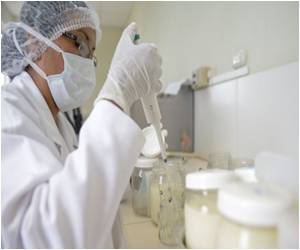Specific variations in a single gene is known to be the cause of many rare and incurable diseases such as cystic fibrosis and Pfeiffer syndrome.

‘Scanning large populations to find individuals who are healthy despite carrying gene variants known to cause disease holds great promise for understanding genetic diseases.
’





Up to now, medical science assumed that anyone unlucky enough to have one of these so-called Mendelian mutations -- named after the 19th-century founder of modern genetics -- was doomed. "Most genomic studies focus on finding the cause of a disease, but we see tremendous opportunity in figuring out what keeps people healthy," said Eric Schadt, a professor at the Icahn School of Medicine in New York City, and a main architect of the study.
"Millions of years of evolution have produced far more protective mechanisms than we currently understand," he said in a statement.
Together with colleagues Stephen Friend and Rong Chen, Schadt led a team of 30 researchers in sifting through data on nearly 900 genes from each person's genome, looking for the telltale mutations leading to any of hundreds of distinct genetic diseases.
A rigorous process of winnowing left them with 13 individuals who had gene variants that would normally result in one of eight debilitating conditions.
Advertisement
The results were published in Nature Biotechnology.
Advertisement
The next step would be to locate enough cases of people who have survived to adulthood despite these genetic flaws to identify -- and eventually duplicate -- these protective mechanisms.
Genetic superheros
Until recently, it would have been technically unfeasible to scan hundreds of thousands of human genomes in this manner.
"This study demonstrates the power of using big data to ask new biological questions," said Anne Wojcicki, co-founder and CEO of personal genomics company 23andMe, which participated in the project by providing access to data on more than 400,000 of its customers.
In a frustrating twist, however, the researchers were unable to follow up with any of the 13 people found because of limitations in the consent policies they had signed.
Experts commenting on the study said this was a regretable shortcoming that limited the value of the findings and would need to be changed in future research.
"Some of the patients may have had disease that went unreported," said Scott Hebbring, a scientist at the Marshfield Clinic Research Foundation and a professor at the University of Wisconsin.
Ada Hamosh, clinical director of the McKusick-Nathans Institute of Genetic Medicine at Johns Hopkins University, said mutation for cystic fibrosis were so unlikely in healthy people that the results may have stemmed from a "technical error."
The two cases of Pfeiffer syndrome, he added, could have been so mild as to not be detected as such.
But commentators agreed that the idea of scanning large populations to find individuals who are healthy despite carrying gene variants known to cause disease holds great promise.
"Achieving this goal will require incredibly large sample sizes," measured in millions not thousands, said MacArthur.
It will also need what he called "genetic superheros" to step up and dotate their genomic and clinical data so researchers can pick through them.
Source-AFP











